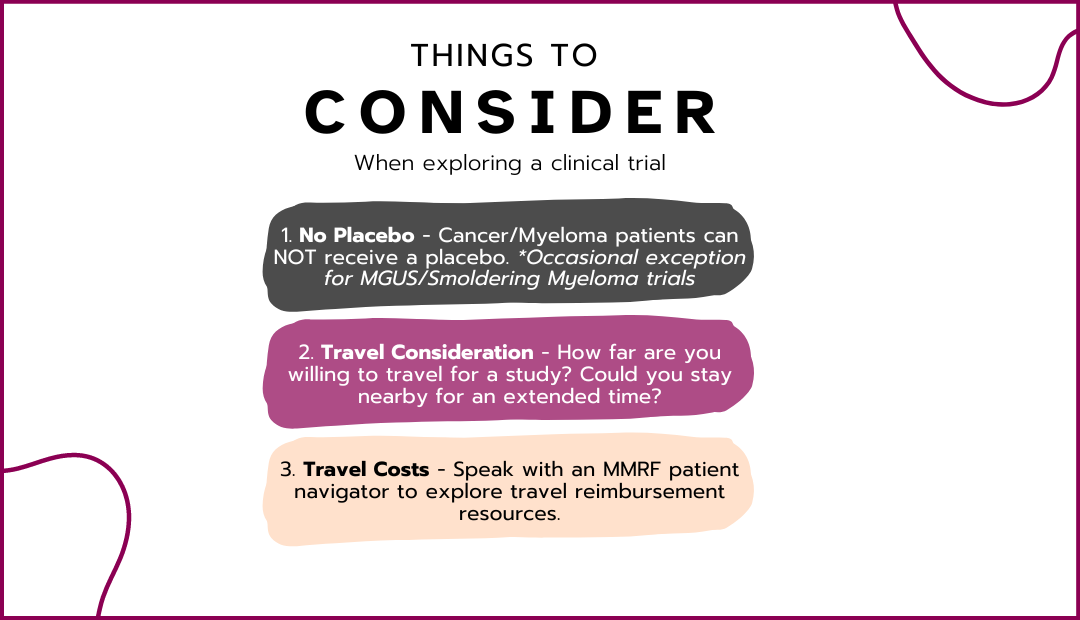A Vaccine (VSV-hIFNβ-NIS) with or Without Cyclophosphamide and Combinations of Ipilimumab, Nivolumab, and Cemiplimab in Treating Relapsed or Refractory Multiple Myeloma, Acute Myeloid Leukemia or Lymphoma
NCT03017820
Age 18 +
Sex Both
Phase Phase 1
Third Opinion Trial Synopsis
Doctors are testing a new treatment for certain types of cancer that have come back or aren't responding to other treatments. They are using a virus called VSV-hIFNbeta-NIS that has been changed to target cancer cells without harming healthy cells. They are also giving patients a medicine called ruxolitinib phosphate to stop cancer cells from growing. This combination of treatments may work better to treat multiple myeloma, acute myeloid leukemia, and T-cell lymphoma.
Doctors are testing a new treatment for certain types of cancer that have come back or aren't responding to other treatments. They are using a virus called VSV-hIFNbeta-NIS that has been changed to target cancer cells without harming healthy cells. They are also giving patients a medicine called ruxolitinib phosphate to stop cancer cells from growing. This combination of treatments may work better to treat multiple myeloma, acute myeloid leukemia, and T-cell lymphoma.
Third Opinion AI Generated Synopsis
Trial Summary
This phase I trial studies the best dose and side effects of the VSV-hIFNβ-NIS vaccine with or without cyclophosphamide and combinations of ipilimumab, nivolumab, and cemiplimab in treating patients with multiple myeloma, acute myeloid leukemia or lymphoma that has come back after a period of improvement (relapsed) or that does not respond to treatment (refractory). VSV-IFNβ-NIS is a modified version of the vesicular stomatitis virus (also called VSV). This virus can cause infection and when it does it typically infects pigs, cattle, or horses but not humans. The VSV used in this study has been altered by having two extra genes (pieces of DNA) added. The first gene makes a protein called NIS that is inserted into the VSV. NIS is normally found in the thyroid gland (a small gland in the neck) and helps the body concentrate iodine. Having this additional gene will make it possible to track where the virus goes in the body (which organs). The second addition is a gene for human interferon beta (β) or hIFNβ. Interferon is a natural anti-viral protein, intended to protect normal healthy cells from becoming infected with the virus. VSV is very sensitive to the effect of interferon. Many tumor cells have lost the capacity to either produce or respond to interferon. Thus, interferon production by tumor cells infected with VSV-IFNβ-NIS will protect normal cells but not the tumor cells. The VSV with these two extra pieces is referred to as VSV-IFNβ-NIS. Cyclophosphamide is in a class of medications called alkylating agents. It works by damaging the cell's DNA and may kill cancer cells. It may also lower the body's immune response. Immunotherapy with monoclonal antibodies, such as ipilimumab, nivolumab, and cemiplimab, may help the body's immune system attack the cancer, and may interfere with the ability of tumor cells to grow and spread. Giving VSV-IFNβ-NIS with or without cyclophosphamide and combinations of ipilimumab, nivolumab, and cemiplimab may be safe and effective in treating patients with recurrent peripheral T-cell lymphoma.
This phase I trial studies the best dose and side effects of the VSV-hIFNβ-NIS vaccine with or without cyclophosphamide and combinations of ipilimumab, nivolumab, and cemiplimab in treating patients with multiple myeloma, acute myeloid leukemia or lymphoma that has come back after a period of improvement (relapsed) or that does not respond to treatment (refractory). VSV-IFNβ-NIS is a modified version of the vesicular stomatitis virus (also called VSV). This virus can cause infection and when it does it typically infects pigs, cattle, or horses but not humans. The VSV used in this study has been altered by having two extra genes (pieces of DNA) added. The first gene makes a protein called NIS that is inserted into the VSV. NIS is normally found in the thyroid gland (a small gland in the neck) and helps the body concentrate iodine. Having this additional gene will make it possible to track where the virus goes in the body (which organs). The second addition is a gene for human interferon beta (β) or hIFNβ. Interferon is a natural anti-viral protein, intended to protect normal healthy cells from becoming infected with the virus. VSV is very sensitive to the effect of interferon. Many tumor cells have lost the capacity to either produce or respond to interferon. Thus, interferon production by tumor cells infected with VSV-IFNβ-NIS will protect normal cells but not the tumor cells. The VSV with these two extra pieces is referred to as VSV-IFNβ-NIS. Cyclophosphamide is in a class of medications called alkylating agents. It works by damaging the cell's DNA and may kill cancer cells. It may also lower the body's immune response. Immunotherapy with monoclonal antibodies, such as ipilimumab, nivolumab, and cemiplimab, may help the body's immune system attack the cancer, and may interfere with the ability of tumor cells to grow and spread. Giving VSV-IFNβ-NIS with or without cyclophosphamide and combinations of ipilimumab, nivolumab, and cemiplimab may be safe and effective in treating patients with recurrent peripheral T-cell lymphoma.
from ClinicalTrials.gov
Locations & Contact
Fill out the form and to let the Multiple Myeloma Research Foundation know you are interested in this trial.
Contacts:

